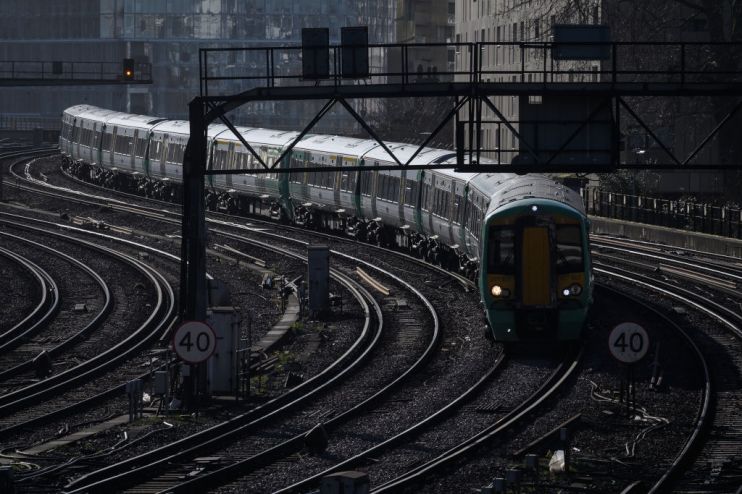Government lacks ‘convincing’ plan to get travellers back on trains

The government does not have a “convincing and timely plan for encouraging passengers back to the railway” after the pandemic, a new report from the public spending watchdog has found.
The Public Accounts Committee (PAC) said that the lack of direction on this issue from the Department for Transport (DfT) risked pushing people back into their cars.
Since the start of the pandemic the number of people using the UK’s trains has plummeted to historically low levels due to concerns over the health risks.
A total of 388m rail passenger journeys were made in Britain in 2020-21, just 22 per cent of 1.7bn journeys made in 2019-20. This is lowest level of annual passenger usage since the Office of Road and Rail began collecting data in 1872.
The report comes after Boris Johnson announced that most remaining restrictions would be lifted on 19 July, including the need for social distancing and compulsory mask wearng.
But the latest survey from London Travelwatch, the capital’s transport watchdog, showed that half of respondents said they wouldn’t use public transport unless social distancing is in place.
And 58 per cent say they won’t use public transport unless passengers are required to wear a face covering.
DfT does not ‘appreciate the scale of the challenge’
In addition, the report said that the DfT has “neither the necessary urgency nor appreciates the scale of the challenge ahead” for the industry.
And it added that the current reporting from the department on the cost of running the railway was insufficient to “inform proper oversight” after the vast increase in public spending on the network.
Since the beginning of the pandemic in March last year, ministers have spent over £10bn – £800m per month – propping up the industry.
The report comes shortly after the DfT unveiled its long-awaited plan to reform the UK’s rail system.
Under the reforms, the current franchising model will be replaced by a concession-based system, while a new “guiding mind”, Great British Railways, will take over management of the whole network.
But commenting on the plans, the PAC report questioned whether the plan“fairly distributes risks between government and operators, or provides incentives for operators to deliver efficient, high-quality, and value-for-money passenger services.”
It also said it was “disappointed” by the lack of progress that has been made in developing a plan to electrify the UK’s railways, a key part of the push towards net zero.
Committee chair Meg Hillier said: “Rail reform won’t work if it doesn’t work for tax-payers and fare-paying passengers, and the Government won’t achieve its economic and environmental goals without effective rail reform.
“The government needs to show it can act with urgency and put passengers’ experience at the centre of its reforms.”
A DfT spokesperson said: “Our Plan for Rail sets out the biggest reforms to our railways in a generation, focused on the passenger, ending a fragmented, unsustainable system and delivering clear national leadership under a single body, Great British Railways.
“The unprecedented taxpayer support for rail kept services running, moving vital freight and medical supplies, transporting key workers, and protecting thousands of frontline jobs. This support came with rigorous scrutiny to protect taxpayers interests.
“Our proposals will ensure greater value for money for taxpayers and a better deal for passengers – with affordable fares and the punctual, reliable services they deserve as people return to the railways.”